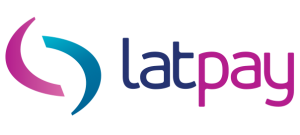Benefits of using tokenisation for payment security
Tokenisation is the process of generating a random string of values (known as a unique ID number or token) to substitute sensitive data like payment details.
Using tokenisation, businesses can offer a smooth and secure method of taking payments that allows increased protection against payment fraud.
So how does it work? In essence, cardholder data is stored in a secure token vault that can only be accessed by the payment provider; consumer data is tokenised immediately upon making payment so their actual card data never passes through payment systems.
What’s the difference between tokenisation and encryption?
When talking about tokenisation, many people think of encryption. However, tokenisation offers significantly greater security than encryption, quickly becoming the industry-leading method of securing data for payment processing. Here are some of the key differences:
Encryption:
- Mathematically generates cipher text using an algorithm and key
- Format preservation means lower security strength
- Encrypted data leaves the organisation
Tokenisation:
- Randomly generates a value for plain text
- Format maintained without any loss of security
- Encrypted data remains within the organisation, allowing heightened security
Benefits of using tokenisation for payment security
Reduced impact of a potential data breach
While we hope it won’t happen, data breaches are all too common in businesses and industries across the board. You don’t have to be a large corporation to become a target, either. In fact, SME’s are often recognised for their inferior systems security, making them a primary target for hackers.
Using tokenisation, however, sensitive data like credit card numbers aren’t accessible during a breach. This is due to the fact that data is stored as tokens, and are therefore unusable to anyone but your organisation. So while tokenisation may not be able to protect your business against a breach, the financial impact will be significantly reduced by using tokenisation for data security.
Protect your reputation and build trust
As a business, your reputation is arguably your most valuable asset, one that can take years to build yet an instant to destroy. To ensure your reputation remains intact, building and maintaining trust among your customers is absolutely critical.
Particularly for online businesses, customers need to have significant trust in your ability to protect their data in order to feel comfortable making a purchase.
Tokenisation helps businesses to build and maintain this trust by demonstrating a dedication to data security. As the most impenetrable method of protecting payment data, consumers feel confident that their card details are safe and your business maintains a reputation of putting customers first.
Compliance with the Payment Card Industry Data Security Standard (PCI DSS)
To ensure security of cardholder data, any business accepting, processing, or storing card details must be compliant with PCI-DSS regulations.
There are 12 levels of PCI-DSS requirements depending on various factors of your business – primarily, how many annual transactions you process. Regardless of your requirements, striving for the highest level of compliance is always recommended and tokenisation is a great way to achieve this.
Of course, tokenisation doesn’t guarantee compliance. However, partnering with a PCI-compliant payment service provider to offer tokenisation means you’ll also benefit from other secure services that help you to meet your compliance obligations.
Offer industry-leading security with tokenisation
Tokenisation is undoubtedly the most advanced way of securing cardholder data for payment processing. If the security of your customers is paramount to your business, learn more about implementing tokenisation with a PCI DSS Level 1 certified provider like Latpay.





